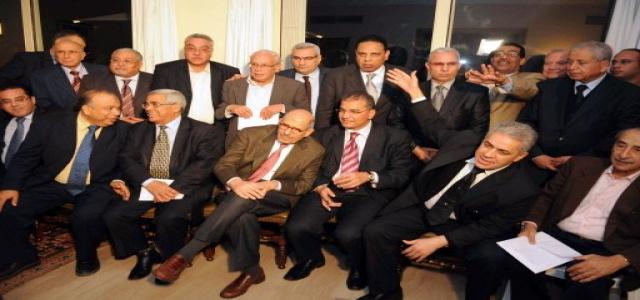An article in the Guardian cites that the final results of the recent Egyptian parliamentary ballots guarantee five years of political insignificance for the institutional opposition.
With only less than 4% of the opposition securing seats out of the 504 available during the 2010 parliamentary polls, opposition parties achieved the worst electoral result since 1990.
The strongest political opposition group, the Muslim Brotherhood, who are vaguely tolerated, decided to boycott the second round, despite 27 candidates being allegeable to run. The Wafd Party also followed suit as both groups decided to boycott to expose the regime’s mass rigging, ballot stuffing, vote buying and violation by security forces as the regime turned a blind eye.
Author Roberto Rocco, however, believes that this does not completely explain the patent failure of Egypt's institutional opposition. He states:
“Egyptian society is as vibrant as ever, we are often told. However, when discussing this vibrancy and the related desire for change, it appears that internal and external observers are talking about quite different things. On the one hand, the attention of external observers has been catalyzed by Mohamed El-Baradei and by the ever-increasing power of new media. On the other hand, within Egypt, a similar function has been played by the waves of strikes and protests affecting urban centres, the industrial towns of the Nile delta and the countryside."
According to Rocco the disparity in perceptions is largely affiliated to the fact that Egyptian society is influenced by two traditional and resilient differences, namely the separate upper classes from the lower classes, and the urban and rural forces.
“The phenomena attracting external attention have consistently involved only the upper-urban section of Egyptian society. In the case of El-Baradei, it is no secret that most of his support comes from the affluent and educated urban bourgeoisie, and that one of his main weaknesses is his perceived elitism.”
He stresses this disconnection between institutional and popular opposition that harms the prospects for political change in Egypt; he writes,
”The institutional opposition – in the form of political parties – is deeply entrenched in the same milieu, finding its core support in either upper-urban groups (the leftist Tagammu' and the liberal al-Ghad party) or in the upper-rural sections of society (as with the Wafd party, which historically represented large landowners). The Muslim Brotherhood, despite its huge potential for mobilization, is still very much an upper-middle class conservative movement rooted among wealthy professionals and graduates in the larger cities. Coming from and being largely limited to these social groups, the institutional opposition has been unable to comprehend, let alone represent, the two most relevant movements arising from the lower social strata.”
The article ends, failing to take this grievance seriously, the opposition has sadly condemned itself to continuing irrelevance in parliamentary life, preventing a credible political articulation of economic and social demands.
It is important to note that if these movements are ignored it could very well constitute the much-needed popular support for a political opposition to the Mubarak regime.







